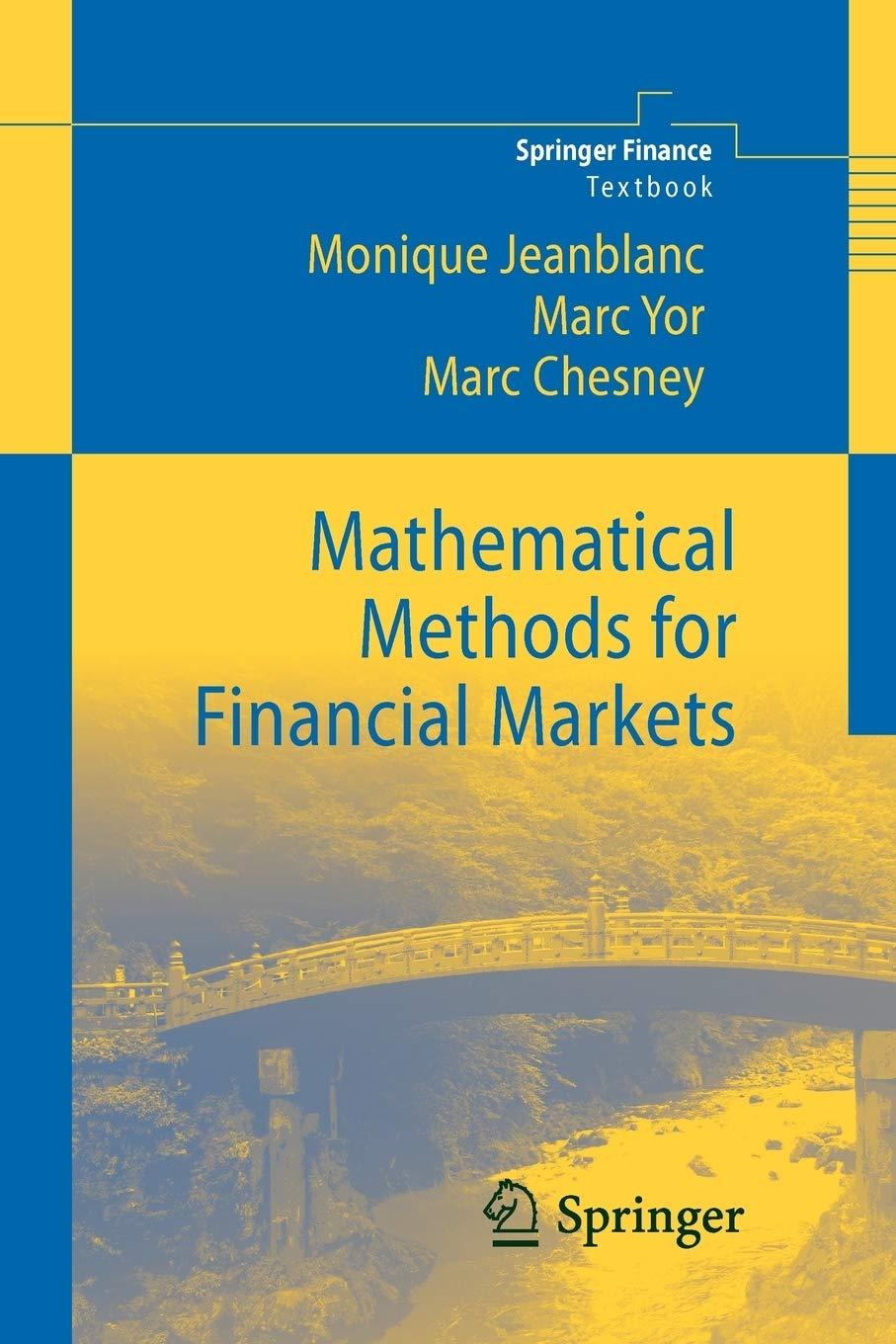Let (A) be an increasing process, with (mathbb{Q}) and (mathbb{P}) as above. Prove that the (mathbb{Q})-compensator of
Question:
Let \(A\) be an increasing process, with \(\mathbb{Q}\) and \(\mathbb{P}\) as above. Prove that the \(\mathbb{Q}\)-compensator of \(\int_{0}^{t} \frac{d A_{s}}{L_{s}}\) is \(\int_{0}^{t} \frac{d A_{s}^{p, P}}{L_{s-}}\), where \(A^{p, P}\) is the \(\mathbb{P}\) compensator of \(A\).
Let \(H\) be a positive predictable process. Then,
\[\begin{aligned}
\mathbb{E}_{\mathbb{Q}}\left(\int_{0}^{t} H_{s} \frac{d A_{s}}{L_{s}}\right) & =\mathbb{E}_{\mathbb{P}}\left(L_{t} \int_{0}^{t} H_{s} \frac{d A_{s}}{L_{s}}\right) \\
& =\mathbb{E}_{\mathbb{P}}\left(\int_{0}^{t} H_{s} d A_{s}\right)=\mathbb{E}_{\mathbb{P}}\left(\int_{0}^{t} H_{s} d A_{s}^{p, P}\right) .
\end{aligned}\]
Step by Step Answer:

Mathematical Methods For Financial Markets
ISBN: 9781447125242
1st Edition
Authors: Monique Jeanblanc, Marc Yor, Marc Chesney





